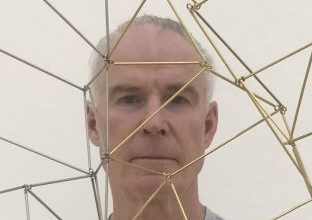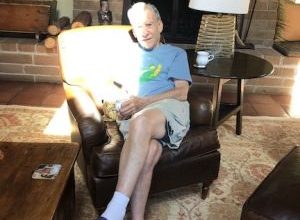Nonfiction: A Little Chat with a Big Dog by Ken Carlson
A Little Chat with a Big Dog
by Ken Carlson
“Pete (Rose) would get his 200 hits, and (Johnny) Bench would do his thing,” said Pat Corrales, former teammate of hall-of-famer Tony Pérez. “And Tony would get shoved in the background, driving in his 100 runs every year. You’d see it in the notes at the end of the stories in the paper – ‘Oh, by the way, Perez hit a three-run homer to win the game.’”
They know the game. They know life on the road. They’re used to the expectations of the fans, and the pressure from the media. So, if you have respect for the game and the opportunity to interview one, you would like it to go well.
Pérez retired from baseball in 1986. In 1993, following the firing of Lou Piniella, just a couple of years removed from their championship run in 1990, Pérez was named manager of the Reds.
The Reds came out of the gate sluggish that year. The lineup lacked firepower (Chris Sabo led the team with only 21 HR), the rotation was soft (José Rijo won 14 games, no one else topped 10). There were concerns this year would find them middle-of-the-pack.
As a rookie reporter from a very small station, I was a little nervous to start. Fortunately, I had met one of the players, reliever Bill Landrum, through a friend and was able to joke around a little, warm up my cassette recorder with him first.
Pérez came out of his office after a few minutes, joined by general manager Jim Bowden, which isn’t always the best sign. I followed the pack of reporters to Pérez and tried to box out some position. As a newcomer to the market and the industry, I wanted to make a good first impression, both with my fellow reporters and one a star in the national pastime.
I held my trusty cassette recorder and extended the cord from the microphone as far as I could to pick up Pérez in his heavy Cuban accent make stock responses to stock questions. The team played hard but came up short. The pitching is coming along but can’t afford to walk so many hitters at this level.
At a pause, I decided to take my shot. I lunged forward and hollered a question above the din.
“Tony, you moved Roberto Kelly to the leadoff spot. How do you feel about his production?” Not a horrible question, albeit one I learned he’d already discussed at length in his pre-game press conference. Nonetheless, as a journalist I wanted a distinct quote for my station’s broadcast. This is where I would make my mark. Surrounded by a dozen or two fellow reporters, I held out my microphone anxiously waiting for his response.
As Pérez began to speak, he paused and quirked his head slightly in his reaction, then continued his response. I felt the eyes of the Cincinnatipress on me. This may not have been the Reds’ day, and I realized it wasn’t to be mine either.
The cord fell out of my microphone. The chintzy mic with the dented recorder from a small-time station had let me down. One moment I was Woodward or Bernstein, the next, I’m wasn’t even Les Nessman (see WKRP for reference). I was interviewing a major league manager with a dead microphone. I might as well have been asking him comment by speaking into a spoon or my left sneaker.
Was I embarrassed? Yes. Did I ask a follow-up question? Yes. Why not? We were already playing make believe, why not continue the charade? To his credit, Pérez answered the questions, a little bemused, but professional.
That would be my last chance to interview the great Tony Pérez. Things wouldn’t work out for me in Cincinnati. By year’s end I would leave town and head back east. Before I left I interviewed Jim Bowden, over a recently installed, durable, telephone. He was practicing damage control with a list of reference points to past year’s winners, and how their teams struggled out of the gate as well. All would be well. Bowden had all the confidence in his team and his manager.
44 games into the season Tony Pérez was fired.
About the author
KEN CARLSON is the author of “GET OUT OF MY WAY! THE ANNOYED COMMUTER’S HANDBOOK.” He has covered the Arts for several news sites and his editorial work for The Comedians Magazine was featured in the A.V. Club section of The Onion. Recently he has published humorous essays online for Defenestration, Conceit Magazine, and Variety Pack, as well as short stories for 365 Tomorrows, Flora Fiction, and Literary Heist. Follow him online @KenCarlsonsaid.
Enjoy more Non Fiction on Flashes









